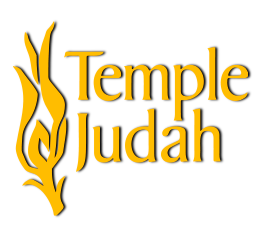Shalom All,
One of the unique things about the celebration of Chanukah is the requirement to publicize the miracle of Chanukah to a passersby. We do this by placing our menorah in a window that is visible to the street.
Why, however, is this particular commandment linked to a public display of its performance? There are no other commandments where promotion plays such a meaningful role. Why, then, is it so important to light the Chanukah in such a public way?
The commentator S’fat Emet offers a fascinating insight into our people’s victory over the Greeks which helps understand this public requirement and even explains the deeper meaning of the celebration of Chanukah.
As Jews, we are taught that holiness is found in all aspects of God’s creation. According to tradition God created sparks of holiness in every part of creation. Eating, sleeping, even exercising, can bring holiness into our lives when we devote the energy created by these activities to the service of God. Our mission, therefore, is to find holiness in the seemingly mundane actions of our daily life, and thereby bring a sense of purpose and meaning to our existence.
The overriding culture of the Greeks, the S’fat Emet maintains, was not the worship of idols; it was the philosophy that nothing is sacred. Their secularist world view was that only the physical was important, not the metaphysical. Their main thrust was that everything must be subject to reason. The Greeks presented the notion that nothing can be accepted if it cannot be proven by logic. Only things that can be seen, tasted, or measured are to be valued.
This would explain their preoccupation with eliminating Shabbat and Holy Day observances, daily prayer, and even circumcision. They were offended by the concept that one day of the week was different than any of the others. What is the physical difference between Shabbat and Tuesday, they asked? What is logic behind circumcision? They defiled the Temple in Jerusalem because they were affronted by the notion that one particular place could be any holier than any other place in the world.
With this in mind, the S’fat Emet offers a beautiful reason for the public display of the Chanukah lights. He suggests that what we are really displaying is our fundamental faith in the notion that there is holiness in every part of creation. While the Greeks disputed the notion that there is holiness anywhere, especially the Temple, we proclaim for all that there is holiness in our homes, in the public square, and even in the minutiae of secular existence. The Greeks attempted to hide all displays of holiness; we respond by projecting holiness to the eyes of all who pass by.
May the holiness of the Chanukah enlighten all aspects of our lives.
Happy Chanukah everyone.
Rabbi Todd

